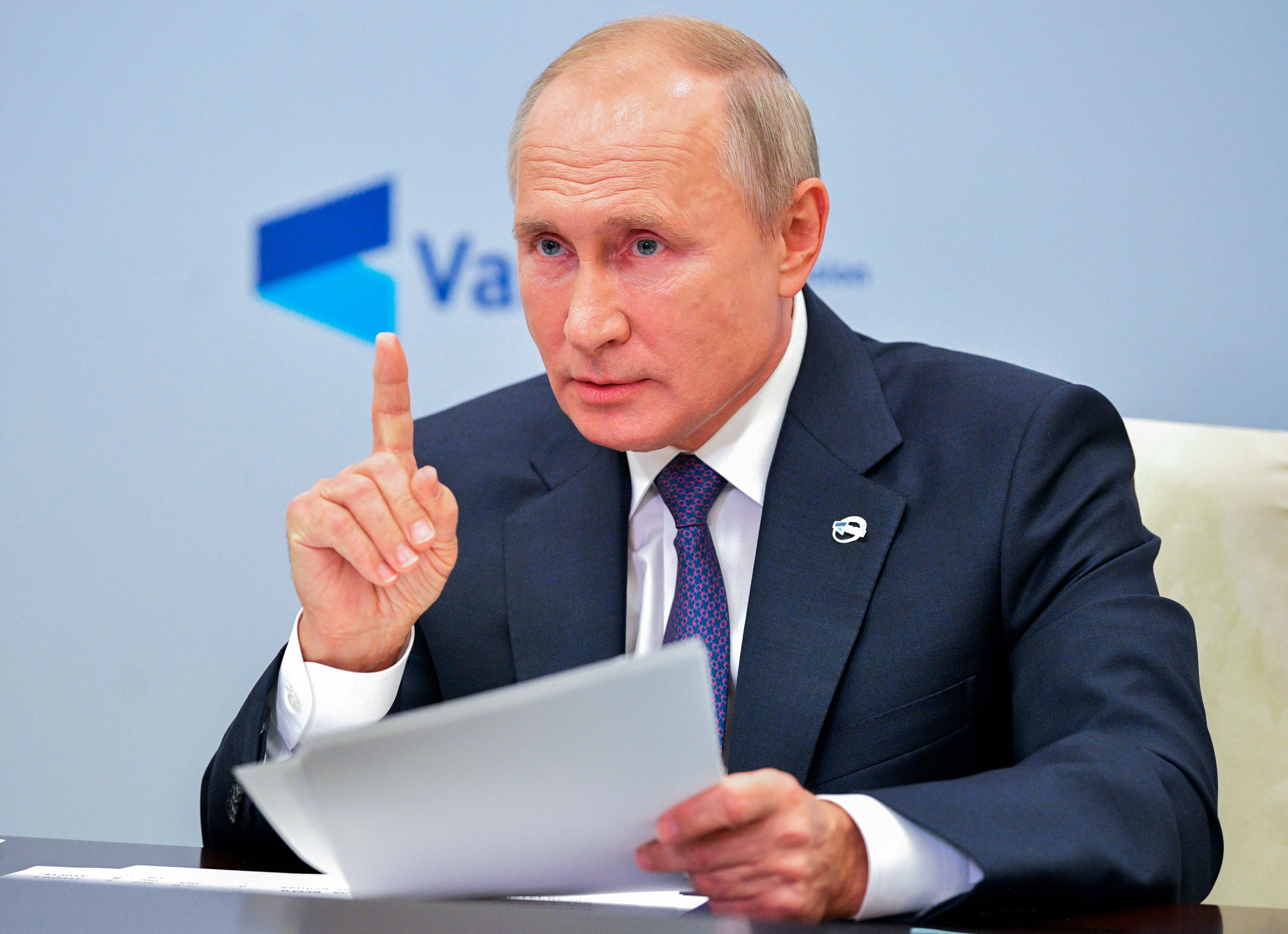What do Russia and Iran have to gain from obtaining US voter information?
It doesn’t appear to be a particularly sophisticated attack – but we should probably expect more of this in the coming weeks, writes Sean O’Grady


Given the circumstances, it can be no great surprise that the FBI has made its announcement that Iran and Russia have obtained US voter information. Although Iran is something of a new player, as a virtual client state of Vladimir Putin’s Russia, some cooperation between these states may be assumed.
Indeed, the director of US counter-Intelligence William Evanina stated on 8 August that Russia, Iran and China were using “covert and overt influence measures” to interfere with the vote.
Since the Mueller Report last year confirmed Russian activity in the 2016 US presidential election, it has been an accepted fact of political life that the traditional rivals and enemies of the west, most likely encompassing North Korea as well.
As Robert Mueller stated, Russian interference in 2016 was “in sweeping and systematic fashion”. It may have been orchestrated in favour of the Trump campaign, and there may have been some links, but the Mueller investigation did not find sufficient evidence that the Trump campaign “coordinated or conspired with the Russian government in its election-interference activities”.
The spreading of divisive and false stories on social media by “bots” controlled by Russian entities and others is now an accepted hazard on the internet, along with state sponsored hacking, malware and ransomware (such as the WannaCry attack on the NHS in 2017), and the collection of “kompromat”.
Their methods are becoming increasingly sophisticated. Still, it’s worth adding that electoral rolls and, in the US case, details of registered Democrat and Republican voters, is often in the public domain or otherwise widely held.
As it happens, on this occasion the Iranians seem to have conducted a fairly crude exercise by targeting loyal Democrats in swing states with fictitious threats from the Proud Boys, a nationalist Trump fan club. The aim seems to have been to discredit the Trump campaign, presumably in retaliation for the Trump-ordered assassination of a senior Iranian leader, sanctions and the cancellation of the Iran nuclear deal.
On the other hand it simply demonstrated what a hard line the Trump administration has taken with the Iranians, which rather helps his credentials as a guardian of America. It seems to have been a bit of a learning exercise for the Iranians, as if the Russians had set their pupils an espionage project.
As for the Russians, their attitude to Trump, and vice versa, seems so complex and shifting that it is difficult to understand who’s side they’re on. The pattern of their various activities (including in the 2016 EU referendum) suggests they are less interested in particular personalities so much as the pure devilment of dividing the western powers from one another and promoting discord in their civil societies. A divided EU and squabbling Nato, and a politically unstable US and UK may be counted as Russian victories. The internet has proved the ideal all-purpose tool for thus new form of spycraft.
Nothing, in other words, would suit the Russians so well as undermining confidence in the electoral process itself and faith in democracy. Low turnout, disillusion, malfunctioning voting mechanisms, conspiracy theories about disputed and litigated results – all serve Putin’s warped idea of his country’s national interest.
The very fact of Russian interference itself erodes national confidence, so Putin makes sure that the actual link is hard to prove but his fingerprints are left all over what his subordinates and surrogates get up to, with tacit approval. He obliged Donald Trump in the past by denying Russian involvement, safe in the knowledge few believed him.
We should probably expect more of this in the coming weeks, adding to the Trump campaign’s insistence that the election is rigged and will be stolen (or not, if Trump wins). No American presidential election is complete without Putin, this time via proxies in Tehran, having his fun.

Join our commenting forum
Join thought-provoking conversations, follow other Independent readers and see their replies
Comments